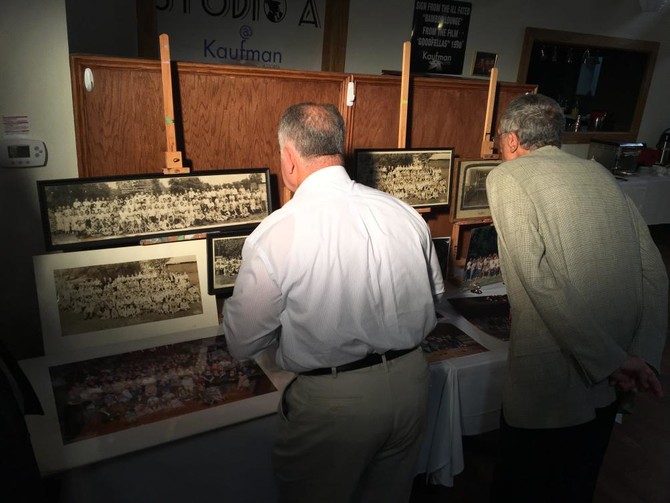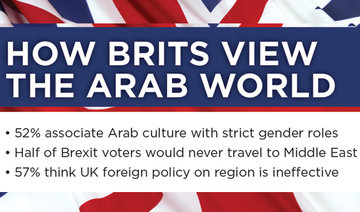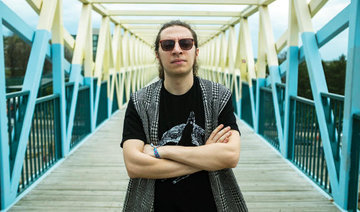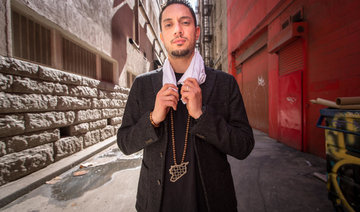LONDON: Last week, the Brooklyn Muslim Mosque celebrated its 110th year anniversary in Astoria, New York City.
It is America’s oldest Muslim association, founded by white Muslims that emigrated from the Baltic states of northern Europe.
The event was marked with a typical New York-style brunch at a party last Sunday that brought together members of the community first established in 1907 as the Lithuanian Tatar Society.
“We’re New Yorkers, through and through, how else would we celebrate a historic milestone than with a brunch?” Alyssa Ratkewitch, an ethnic Lipka Tatar and the vice president, asked.
Alyssa’s grandfather was among those who taught Arabic and Qur’an to generations of ethnic Lipka Tatars when they arrived from countries like Lithuania, Poland and Belarus — part of the same wave of immigration that brought President Donald Trump’s grandfather here from Germany.
The mosque at 104 Power Street, in Brooklyn, New York City, is in a building with a pointed roof and slatted white, wood cladding. It looks more like a church that should be on a prairie than a mosque.
“It used to be a protestant church. After the early Lipka community bought the building in 1927. They added a small turret on the top with a crescent, adapting it to resemble the mosques they had left behind.”
The mass arrival of global immigrants at the turn of the 19th century led to several early Muslim communities being set up across America.
Near Ross in North Dakota, a large rectangular, brick and wood building was used as a mosque by local Syrian and Lebanese immigrants in 1929. It was knocked down in the 1970s.
Then, about twelve years ago, a tiny, brick ‘mosque’ with a dome and ornamental minarets was erected as a reminder of where it once stood.
Another group of Syrian and Lebanese immigrants built the Rose of Fraternity Lodge — later called the Mother Mosque — in Cedar Rapids, Iowa in 1934. It also fell into disrepair in the 1970s. But unlike the one in Ross, the Mother Mosque was rescued and renovated to serve as a heritage and education center.
Meanwhile, the Ahmadiyya Muslim community — originating from Punjab, India — founded their American branch in 1920 in Chicago, purchasing a building two years later on 45th Street and Wabash Avenue to serve as their mosque.
Alyssa’s organization predates all of these. Only the Dzemijetul Hajjrije in Chicago was founded earlier — 1906 -— also by white Europeans from Bosnia. However, that folded in the 1960s.
Inside the Brooklyn Muslim Mosque, it is a picture of integration and assimilation.
One photo on the walls of Alyssa’s office shows a group of clean-shaven men in Western-style suits standing at the front of the 19th century building. Only the man in the middle is dressed in oriental attire — the mosque’s imam.
Another, probably taken in the 1920s, is of Tatar families, smartly dressed around two tables, ready for a Halloween party. Above their heads, gruesome-faced pumpkin decorations hang from the ceiling and on the walls are black silhouettes of flying witches riding broomsticks.
One of the largest photos is from August 29, 1948, where members of the Lithuanian Tatar Society — by then, the American Mohammedan Society — pose alongside the United American Mohammedan Friends Inc. at Platzl Brauhaus picnic grounds in Ladentown, just north of New York City.
The black and white snap could have been of any group of American day trippers. Youngsters stare at the camera in swimsuits, their eyes pleading to hit the park waters; older girls pose in pretty dresses the Fonz’s girlfriends’ once wore on the famous US sitcom. Beside them, young men with greasy slicked-back hair resemble early American movie stars. There is even the odd dickie bow in the midst.
“This was a group of people determined to make a life here and because of that we embraced the ‘American way’ very quickly I think. By my generation, people were even marrying outside of the community — which was very taboo early on — and began moving to different parts of the country,” recalls 63-year-old Marion Sedorowitz, the mosque treasurer.
Throughout the organization’s history, it has remained exclusively a Lipka Tatar group, but as the community became more integrated and American, the numbers using the mosque began to dwindle.
“Over the years, assimilation has meant some people left the faith, became less observant, or simply moved away,” says Marion.
These days, the mosque only opens for community events, the odd religious one and funerals, presided over by the part-time Imam.
“We’ve had barbecues, cooking classes and tea dances. But the main religious service that takes place now are the funerals and some of the Islamic holidays.
“Wherever they are in the country, the members want to have their final rites observed here in the traditional way,” explains Marion.
For 32-year-old Alyssa, the mosque’s past will play a crucial role in its future.
“Our community is an important part of American Muslim history, and we believe it needs to be preserved for future generations. To educate them about this face of Muslim America,” she says.
One of the ways Alyssa and Marion want to do this is by reconnecting with their European heritage.
“At the anniversary brunch we announced our 2018 heritage trip back to the ‘old country.’ We’ve made contact with the Muslims in the Baltic in places where our ancestors once lived, and they’ve agreed to help us go on a journey of rediscovery.
“We hope to visit the towns and villages the early pioneering Tatars that set up the association came from.”
The trip, would see the Brooklyn Muslim Mosque take members of their community on an emotional journey back to countries like Poland, Lithuania and Belarus.
“Our ancestors didn’t have the money or means to visit the homes they had left behind in those days, and so it is unlikely anyone went back after settling in the US,” says Alyssa, who can trace her own roots back to the town of Iwie in Belarus.
“I’ve heard stories about them, and seen pictures of the historic mosques in the old country that our own was based on. Going on this trip should be a great way to connect with people like my great grandfather and his generation, and learn about our culture and heritage. It’ll be great to add new stories to pass on to future generations.”
Alyssa and Marion’s European ancestors’ story goes all the way back to the 14th century, when they first arrived in the Baltic from the Crimea.
Ironically, their Muslim ancestors were invited to the Baltic to fight religiously-intolerant Christian Teutonic Knights.
The Tatar people’s success in helping to defeat the Christians in 1398 meant the Grand Duke of Lithuania, “Vytautas the Great,” invited them to stay, embracing them as his own people.
Today, the mosque finds itself in a similar atmosphere of religious intolerance.
“Our community’s story is a reminder that American Muslims come from all different backgrounds and we have always been here.
“It reminds people that Muslims have also played a part in helping to build the American way of life, right from the start and, most importantly, it shows Americans that Muslims are not something new and dangerous.”
The 110-year-old story of America’s white Muslim community could just be the story the country needs to hear right now.
American Muslim organization founded by European settlers marks 110 years
American Muslim organization founded by European settlers marks 110 years

















